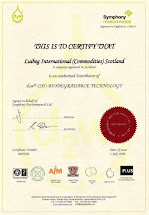Plastic bag ban remains only on paper, says KSPCB chief
Staff Reporter
Bangalore: Despite the ban on plastic bags with less than 20 microns thickness, the State Government has not been able to prevent the use and disposal of this environmentally hazardous material, A.S. Sadashivaiah, Chairman of Karnataka State Pollution Control Board, has said.
Karnataka has failed to regulate the material on two counts — first in preventing the plastic bags from entering the State (either from other States or from local manufacturers); and second, in safely disposing of the material, Mr. Sadashivaiah said on Monday. He was speaking at a national workshop on Plastic Waste Management Strategies for a Clean Environment, organised by the Central Institute of Plastics Engineering and Technology (CIPET).
In Bangalore, for instance, 80 per cent of the 150 tonnes of plastic waste disposed of everyday comprises plastic bags thinner than 20 microns. “This goes unsegregated at the domestic level and is not picked up by waste collectors either as it cannot be recycled,” he said. Mr. Sadashivaiah added that district vigilance teams, made up of environmental officers and headed by Deputy Commissioners, set up to monitor pollution, have been instructed to be “more vigilant” about the use and disposal of plastic bags.
Plastic ‘singled out'
Expressing a rather contrary view, Director-General of CIPET S.K. Nayak said that plastic was being “singled out” as the cause of all environmental woes. “Plastic bags happen to be colourful and fly around, which is probably why they are more conspicuous than other pollutants,” he said. Mr. Nayak added that plastic consumed less energy during production than paper, and produced less greenhouse gases when disposed of. It was important, he said, however, that plastic be managed through the collaborative efforts of the government, private companies and non-government organisations.
Kanwar Pal, Secretary, Department of Ecology and Environment, said that banning plastic was no solution and added that the answer to the menace lay in efficient management and in following the motto of reduce, reuse, recover and recycle. A worrying trend was the burning of plastic as it released harmful chemicals such as and Benzo(a)Pyrene and toxic dioxides.
Tuesday, 30 March 2010
Subscribe to:
Post Comments (Atom)



No comments:
Post a Comment